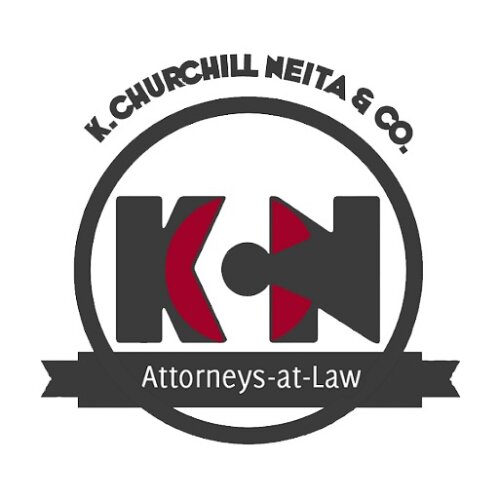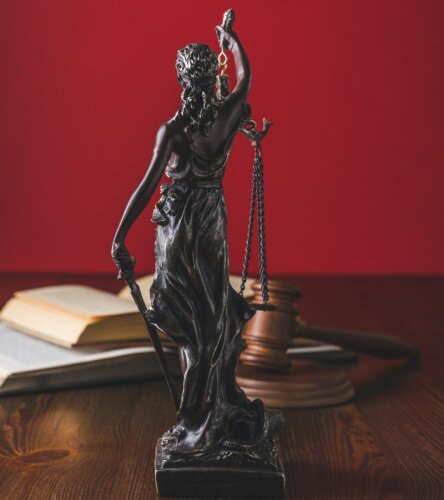Best Restructuring & Insolvency Lawyers in Kingston
Share your needs with us, get contacted by law firms.
Free. Takes 2 min.
List of the best lawyers in Kingston, Jamaica
About Restructuring & Insolvency Law in Kingston, Jamaica
Restructuring and insolvency law in Kingston, Jamaica, covers the legal processes and frameworks that assist businesses and individuals who are unable to meet their financial obligations. It provides mechanisms for managing debts, reorganizing assets, and, in some cases, winding up and liquidating companies. The primary aim is to protect both debtors and creditors, balancing their interests, while attempting to preserve economic stability. These laws are especially relevant in times of financial distress, economic downturns or in situations where companies or individuals face mounting unpaid debts that threaten their ongoing operations or personal assets.
Why You May Need a Lawyer
Engaging a lawyer for restructuring and insolvency matters in Kingston, Jamaica, can be crucial in several situations. Common reasons include:
- Facing court action by creditors or receiving statutory demands for payment.
- Needing to negotiate with creditors to restructure existing debts or avoid bankruptcy.
- Operating a business that is unable to meet financial commitments or is close to insolvency.
- Wanting to explore formal insolvency procedures such as receivership, liquidation, or administration.
- Having assets or properties at risk of being seized due to unpaid debts.
- Being a creditor who wants to recover debts owed by an insolvent company or individual.
- Seeking advice on directors’ or shareholders’ responsibilities during insolvency or restructuring.
A lawyer can help you understand your rights and responsibilities, develop sound strategies, ensure compliance with local laws and guide you through complex court or negotiation processes.
Local Laws Overview
Restructuring and insolvency matters in Kingston, Jamaica, are primarily governed by the Insolvency Act, 2014. This Act sets out the legal foundation for handling personal and corporate insolvency. Key aspects of the local law include:
- Personal Insolvency: The law allows individuals unable to pay debts to propose payment arrangements (individual arrangements) or declare bankruptcy.
- Corporate Insolvency: Companies facing insolvency can pursue restructuring (company arrangements), receivership, or may be ordered into liquidation.
- Role of the Supervisor of Insolvency: This government office oversees insolvency practitioners and ensures procedures comply with the law.
- Moratoriums: When an application is made for restructuring, there are protections against creditor actions to provide breathing space to negotiate solutions.
- Duties of Directors: Company directors have defined responsibilities to act in creditors’ best interests once the company is insolvent.
- Voidable Transactions: The law identifies certain transactions before insolvency that may be set aside to protect creditors.
Efforts are made to prioritize rehabilitation and encourage viable businesses to survive wherever possible, but where this is not feasible, the legislation provides for structured wind-up and asset distribution to creditors.
Frequently Asked Questions
What is the difference between restructuring and insolvency?
Restructuring involves reorganizing debts and business operations to restore financial health, while insolvency occurs when a person or company cannot pay their debts as they fall due.
What are my options if I cannot pay my debts?
Options include negotiating informal payment plans, entering into a formal personal arrangement under the Insolvency Act, or, in more serious cases, filing for bankruptcy.
Can a company continue to operate during insolvency proceedings?
Yes, in some cases, a company may continue to operate under supervision while it seeks to restructure its debts through arrangements approved by creditors and the court.
What is receivership?
Receivership is when a secured creditor appoints a receiver to manage and sell a company's assets to recover outstanding debts.
What does liquidation mean?
Liquidation is the formal process of winding up a company, selling its assets, and distributing the proceeds to creditors in accordance with the law.
Are all my assets at risk if I declare personal bankruptcy?
Not necessarily. Certain assets may be exempt from the bankruptcy estate. An insolvency lawyer can advise on what may be protected under the law.
How are creditors paid in an insolvency case?
Creditors are usually paid in order of statutory priority. Secured creditors are paid first, followed by preferred and then unsecured creditors.
What role does the Supervisor of Insolvency play?
The Supervisor of Insolvency oversees compliance with insolvency laws, supervises approved trustees and ensures fair treatment of both debtors and creditors.
How can I avoid formal insolvency proceedings?
Early negotiation with creditors, seeking professional advice, and entering informal or formal restructuring arrangements may help avoid bankruptcy or liquidation.
How long does bankruptcy last in Jamaica?
Bankruptcy typically lasts three years, but this period may vary depending on the circumstances and agreements reached with creditors.
Additional Resources
The following resources and authorities can offer further assistance and information regarding restructuring and insolvency in Kingston, Jamaica:
- Supervisor of Insolvency: The government body responsible for overseeing insolvency processes, maintaining the register of insolvency practitioners and monitoring case compliance.
- Supreme Court of Judicature of Jamaica: Handles insolvency and bankruptcy applications for both individuals and corporations.
- Companies Office of Jamaica: Keeps company records and can assist with company searches and filings, especially during restructuring.
- Jamaica Bar Association: Provides directories that can help you find qualified insolvency and restructuring lawyers.
- Ministry of Industry, Investment and Commerce: Offers guidance on business formalities, including those relating to insolvency.
Next Steps
If you or your business are experiencing financial difficulties in Kingston, Jamaica, and believe you may require restructuring or insolvency assistance, consider the following steps:
- Gather all relevant financial documents, including debt records, contracts, and correspondence with creditors.
- Identify and prioritize your most urgent obligations, such as creditors who have begun legal action.
- Consider consulting a qualified lawyer experienced in restructuring and insolvency law in Jamaica to discuss your situation and potential solutions.
- Contact the Supervisor of Insolvency or check their website for guidance on local processes and approved practitioners.
- Take action as soon as possible - early advice and intervention often lead to better outcomes for both debtors and creditors.
Dealing with insolvency or financial restructuring can be complex and stressful. With the right professional guidance and understanding of your legal options, you can make informed decisions that best protect your interests in Kingston, Jamaica.
Lawzana helps you find the best lawyers and law firms in Kingston through a curated and pre-screened list of qualified legal professionals. Our platform offers rankings and detailed profiles of attorneys and law firms, allowing you to compare based on practice areas, including Restructuring & Insolvency, experience, and client feedback.
Each profile includes a description of the firm's areas of practice, client reviews, team members and partners, year of establishment, spoken languages, office locations, contact information, social media presence, and any published articles or resources. Most firms on our platform speak English and are experienced in both local and international legal matters.
Get a quote from top-rated law firms in Kingston, Jamaica — quickly, securely, and without unnecessary hassle.
Disclaimer:
The information provided on this page is for general informational purposes only and does not constitute legal advice. While we strive to ensure the accuracy and relevance of the content, legal information may change over time, and interpretations of the law can vary. You should always consult with a qualified legal professional for advice specific to your situation.
We disclaim all liability for actions taken or not taken based on the content of this page. If you believe any information is incorrect or outdated, please contact us, and we will review and update it where appropriate.















